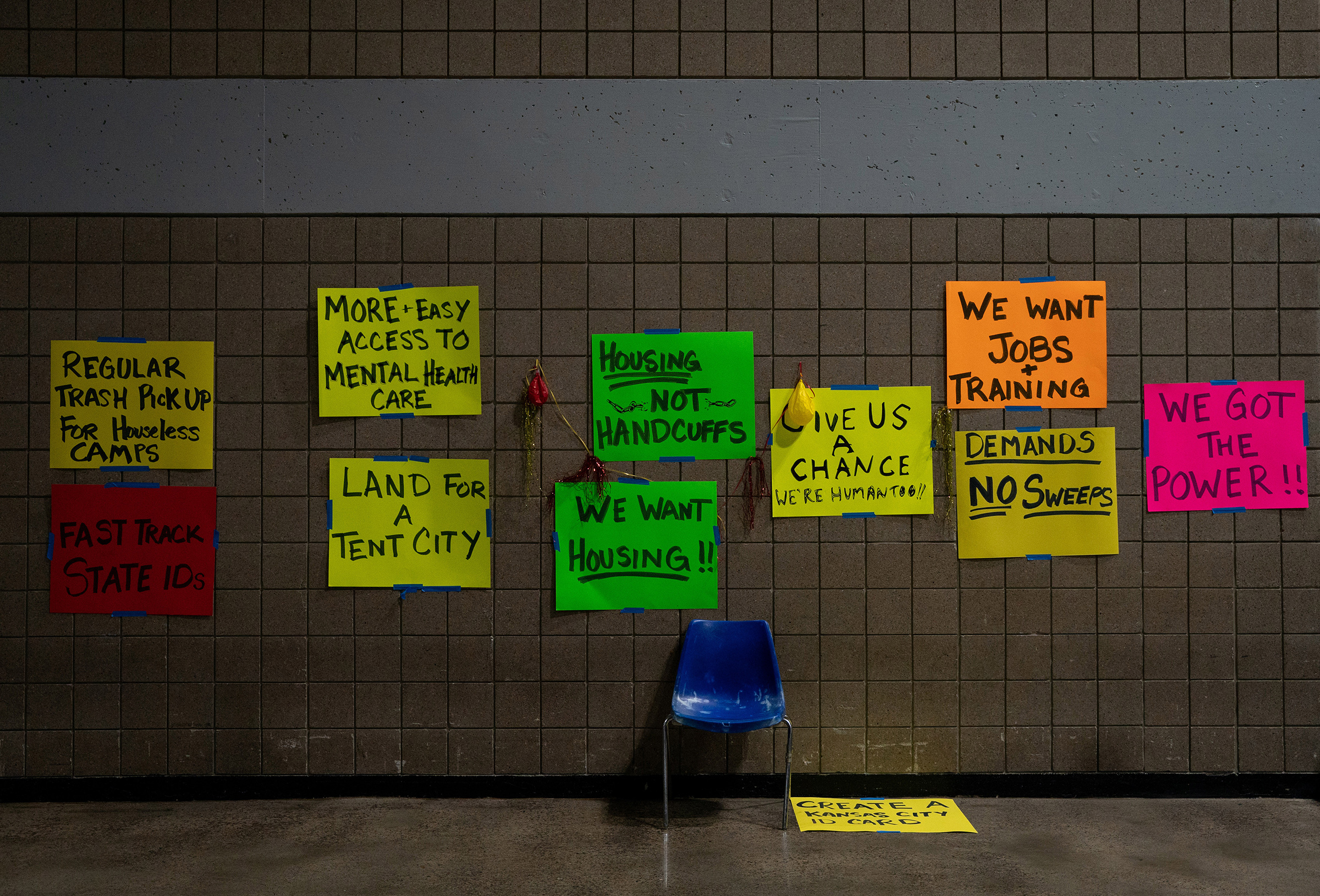
I had never realized St. Louis could get this cold in September. I reached into the back seat to take my 6-month-old daughter and 1-year-old son out of the playpen that was perched in front of trash bags filled with our clothes, and into my arms. The hot, late-summer sun had set, and the temperature plummeted with it. I fought sleep, my eyes watering from exhaustion. What if my babies got too cold and I didn’t wake up? I looked down at my watch. It was 3 AM ─ 4 hours until I had to be up for my shift.
Today, as a Congresswoman, I remember what it was like for us to live out of my car when I’m thinking about how to legislate on behalf of my district. I think about how society wanted me to believe that being unhoused was my fault. We have a deeply rooted misconception in our country that unhoused people have done something to deserve their conditions ─ when the reality is that unhoused people are living the consequences of our government’s failure to secure the basic necessities people need to survive. Many unhoused people work full time but earn starvation, unlivable wages. Some struggle to access mental health services or substance use treatment, making earning a consistent and stable wage nearly impossible.
When I was living out of my car, I did not know where we were going to eat, use the bathroom, rest or enjoy a quiet moment. I used McDonald’s bathrooms to mix baby formula and wash my body because I had no other options. I received food from food pantries, but I could not eat the items that had to be refrigerated or cooked. This never ending instability, combined with the constant fear of interacting with the police, losing custody of my children, having my car impounded — or even losing my life — left me stressed, traumatized and exhausted.
Being unhoused in America must no longer be viewed as an individual shortcoming, but rather as an unacceptable, life-threatening policy failure. Our government created the economic and social conditions under which I, and countless others, became unhoused — through unlivable wages, the absence of affordable housing and childcare, and an inaccessible health care system. Instead of comprehensively addressing this crisis, our government has approached it with patchwork solutions that disregard the humanity of people without housing and those who are living on the edge.
It shouldn’t be this way. It doesn’t have to be this way.
This week, I introduced a resolution that would put unhoused people in homes, address the compounding public health emergency, and eradicate the conditions that foster the unhoused crisis. The Unhoused Bill of Rights is the first-ever federal legislation to declare the civil and human rights of unhoused individuals, particularly the right to sit, stand, sleep, or eat in public without fear of harassment or criminalization. It describes in detail the multitude of complex issues faced by unhoused people on a daily basis, especially in relation to the disproportionately high levels of mental and physical trauma, substance use disorders, exposure to communicable diseases, and treatment on behalf of health care professionals.
The Unhoused Bill of Rights illustrates concrete actions the federal government is obligated to take to end the unhoused crisis by 2025, protect and enforce the human rights of unhoused people, and provide the highest levels of support for unhoused advocates, communities, and programs. Dramatically expanding the affordable housing stock, mandating universal housing vouchers, implementing universal health care, and guaranteeing livable wages are permanent solutions that will keep people sheltered and safe.
With the eviction moratorium set to expire on July 31st, millions of Americans face the imminent threat of becoming unhoused or housing insecure while the global pandemic continues to ravage our communities. The eviction moratorium must not only be extended, but strengthened to protect vulnerable renters and their families. But these monthly extensions are a temporary fix, not a solution. As elected lawmakers, we have a solemn duty and obligation to develop and enact policies that will permanently end the unhoused crisis. This will require bold, holistic action that addresses the root causes that lead to people becoming unhoused.
As I wake up every morning to a life that is so different from where it was 20 years ago, I think of the person who spends their nights struggling to stay awake out of the fear of what could happen to them or their loved ones if they let their heavy eyelids fall shut. It is for that person, and every person who went to bed without a roof over their head or not knowing whether there will be a roof over their head tomorrow, that we must right the societal wrongs that our failed policies have created. It is our duty to build a better future.
More Must-Reads from TIME
- Cybersecurity Experts Are Sounding the Alarm on DOGE
- Meet the 2025 Women of the Year
- The Harsh Truth About Disability Inclusion
- Why Do More Young Adults Have Cancer?
- Colman Domingo Leads With Radical Love
- How to Get Better at Doing Things Alone
- Michelle Zauner Stares Down the Darkness
Contact us at letters@time.com